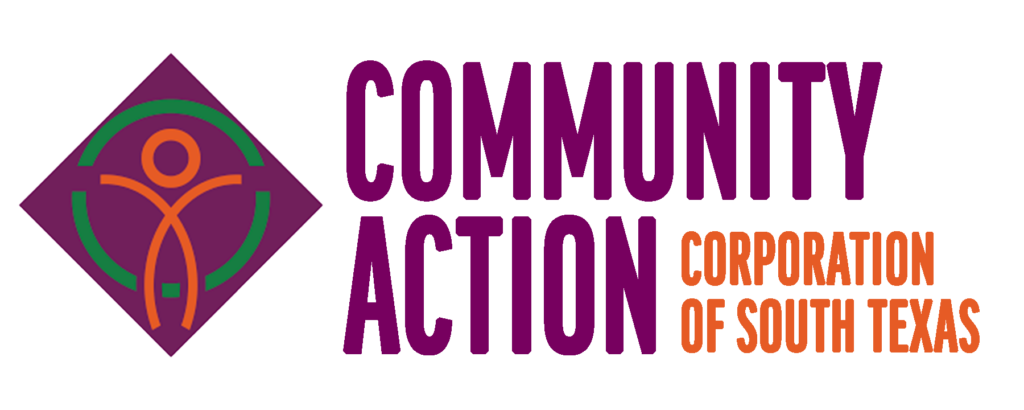Clinical Trial Sites
Local clinical trial sites play a crucial role in advancing equity and access to clinical research for historically underrepresented populations. EQBMED has selected the clinical trial sites below as part of our Learning Phase, a focused effort to ensure local sites and communities that have historically been less engaged in clinical research have the support, resources, and information they need to sustain their involvement in the clinical trials ecosystem.
EQBMED is committed to building trust with the communities these sites serve and carefully planning to meet scientific standards while respecting each site’s unique vision for integrating research into their practice. Through ongoing support and mentorship, we aim to help these sites expand their research capabilities and offer more clinical trials to their patients. The first four local clinical trial sites were announced in February 2024.
In partnership with these sites, EQBMED is fostering a more inclusive and accessible clinical trials ecosystem that reflects the diverse needs of our communities.
EQBMED Local Clinical Trial Sites


About Atrium Health Wake Forest Baptist Comprehensive Cancer Center in Winston-Salem, North Carolina

About Community Action Corporation of South Texas in Alice, Texas
Community Action Corporation of South Texas (CACOST) is a multiservice non-profit organization incorporated in 1971 with a mission to improve the lives of South Texans by providing high-quality healthcare, education, housing, and economic opportunities through various services and partnerships. With over fifty years of uninterrupted service across a sixteen-county service area, CACOST operates across three core divisions: early education, economic stability, and healthcare, providing a comprehensive, whole-person approach to care. Our early education programs include Early Childhood Intervention, Early Head Start, and Head Start Birth to Five. Our economic stability programs provide housing assistance, utility support, Meals on Wheels, and our community services block grant programs. CACOST has provided primary healthcare services since 1986 and became a Federally Qualified Health Center (FQHC) in 2003. Operating health centers across six of the sixteen counties in our agency’s rural service area, CACOST is unwavering in its commitment to advancing its mission and adapting to the evolving needs of its communities. In recognition of its dedication to providing high-quality care, CACOST has been recognized by the Health Resources and Services Administration as a Health Center Quality Leader, placing in the top 10% of health centers nationwide for overall clinical performance. Additionally, CACOST is recognized as a Patient-Centered Medical Home (PCMH), reflecting its commitment to building strong, collaborative partnerships between patients and their care team.

About Grady Health System in Atlanta, Georgia
Grady Health System is one of the largest safety net health systems in the United States. Grady consists of the 953-bed Grady Memorial Hospital, seven neighborhood health centers, Crestview Health & Rehabilitation Center, Correll Pavilion, and Children’s Healthcare of Atlanta at Hughes Spalding, which is operated as a Children’s affiliate. With its nationally acclaimed emergency medical services, Grady is Atlanta’s only Level I trauma center and serves as the 911 ambulance provider for the city of Atlanta. Grady’s Walter L. Ingram Burn Center is the leading burn center in North Georgia. And the Marcus Stroke and Neuroscience Center is a Joint Commission designated Advanced Comprehensive Stroke Center. Other key services/distinctions include Grady’s Regional Perinatal Center with its Neonatal Intensive Care Unit, Georgia’s first Cancer Center for Excellence, The Avon Comprehensive Breast Center, the Georgia Comprehensive Sickle Cell Center, and the Ponce de Leon Center – one of the top HIV/AIDS outpatient clinics in the country. Grady is one of an elite group of hospitals to earn the Baby-Friendly USA international recognition as a Baby-Friendly Designated birth facility.

About Health 360x

About Meharry Medical College in Nashville, Tennessee
Meharry Medical College (MMC), founded in 1876, is the nation’s largest private, independent historically Black academic health sciences center dedicated to educating minority and other health professionals. True to its heritage, it is a United Methodist Church related institution. The college is particularly well known for its uniquely nurturing, highly effective educational programs; emerging preeminence in health disparities research; culturally sensitive, evidence-based health services and significant contribution to the diversity of the nation’s health professions workforce. Meharry is a leading national educator of African Americans with M.D. and D.D.S. degrees and Ph.D. degrees in the biomedical sciences.

About Medical University of South Carolina in Florence, South Carolina
Founded in 1824 in Charleston, MUSC is the state’s only comprehensive academic health system, with a unique mission to preserve and optimize human life in South Carolina through education, research and patient care. Each year, MUSC educates more than 3,200 students in six colleges – Dental Medicine, Graduate Studies, Health Professions, Medicine, Nursing and Pharmacy – and trains more than 900 residents and fellows in its health system. MUSC brought in more than $300 million in research funds in fiscal year 2023, leading the state overall in research funding. MUSC also leads the state in federal and National Institutes of Health funding. For information on academic programs, visit musc.edu.
As the health care system of the Medical University of South Carolina, MUSC Health is dedicated to delivering the highest-quality and safest patient care while educating and training generations of outstanding health care providers and leaders to serve the people of South Carolina and beyond. Patient care is provided at 16 hospitals (includes owned or governing interest), with approximately 2,700 beds and four additional hospital locations in development, more than 350 telehealth sites and nearly 750 care locations situated in all regions of South Carolina. In 2023, for the ninth consecutive year, U.S. News & World Report named MUSC Health University Medical Center in Charleston the No. 1 hospital in South Carolina. To learn more about clinical patient services, visit muschealth.org.
MUSC has a total enterprise annual operating budget of $5.9 billion. The nearly 26,000 MUSC family members include world-class faculty, physicians, specialty providers, scientists, students, affiliates and care team members who deliver groundbreaking education, research, and patient care.


About Parkland Health and UT Southwestern Medical Center in Dallas, Texas
About Parkland Health
Parkland Health is one of the largest public hospital systems in the country. Premier services at the state-of-the-art Parkland Memorial Hospital include the Level I Rees-Jones Trauma Center, the only burn center in North Texas verified for adults and pediatric patients by the American Burn Association and the American College of Surgeons Committee on Trauma and a Level III Neonatal Intensive Care Unit. The system also includes two on-campus buildings housing multi-specialty outpatient clinics – the Ron J. Anderson, MD Clinic and the Moody Outpatient Center, as well as more than 30 community-based clinics and numerous outreach and education programs. Parkland enriches the health and wellness of the communities it serves by providing compassionate care and advancing health equity.
About UT Southwestern Medical Center
UT Southwestern, one of the nation’s premier academic medical centers, integrates pioneering biomedical research with exceptional clinical care, public health and education. The institution’s faculty members have received six Nobel Prizes and include 25 members of the National Academy of Sciences, 22 members of the National Academy of Medicine, and 14 Howard Hughes Medical Institute Investigators. The full-time faculty of more than 3,200 is responsible for groundbreaking medical advances and is committed to translating science-driven research quickly to new clinical treatments. UT Southwestern physicians provide care in more than 80 specialties to more than 120,000 hospitalized patients, more than 360,000 emergency room cases, and oversee nearly 5 million outpatient visits a year.

About Southside Medical Center in Atlanta, Georgia
About Southside Medical Center
Southside Medical Center (SMC) was founded in 1967 as the Atlanta Southside Comprehensive Health Center. SMC has been nationally recognized by the National Association of Community Health Centers for having one of the best primary health care delivery systems for the medically underserved in the country. SMC has centers throughout Metro Atlanta in Norcross, East Point, Riverdale, Hampton and Forest Park. Southside Medical Center’s vision is to set the standard in the provision of quality, affordable health care. Southside Medical Center is committed to providing exceptional primary health care and related services to the medically underserved of Metropolitan Atlanta.


About Texas Southern University in Houston and University of Texas Medical Branch in League City, Texas
About Texas Southern University
Texas Southern University is one of the nation’s largest and most comprehensive historically black colleges or universities in the United States. A distinguished educational pioneer since 1927, Texas Southern University (TSU) has become one of the most diverse and respected institutions in Texas. TSU provides higher education access to the nation’s underserved communities with over 100 academic and research programs that address critical urban issues and prepare its diverse student population of nearly 8,000 students to become a force for positive change in a global society.
The Texas Southern University Joan M Lafleur College of Pharmacy & Health Sciences (COPHS) stands as a beacon of excellence and innovation in the field of healthcare education. Situated in the heart of Houston, Texas, COPHS is dedicated to advancing health care through its cutting-edge programs, research initiatives, and commitment to community service. With a rich history of producing highly skilled and compassionate healthcare professionals, the college is a pivotal part of TSU’s mission to transform students into leaders who are prepared to meet the challenges of a dynamic and diverse healthcare landscape. The mission of the Texas Southern University College of Pharmacy and Health Sciences (COPHS) is to provide quality academic programming to produce an ethnically diverse population of health professionals, especially African Americans and underrepresented minorities, who are transformational leaders in the delivery of interdisciplinary health services while addressing critical and urban issues.
About The University of Texas Medical Branch
Texas’ first academic health center opened its doors in 1891 and today has four campuses, five health sciences schools, six institutes for advanced study, a research enterprise that includes one of only two national laboratories dedicated to the safe study of infectious threats to human health, a Level 1 Trauma Center and a health system offering a full range of primary and specialized medical services throughout the Texas Gulf Coast region. UTMB is an institution in the University of Texas System and a member of the Texas Medical Center.
